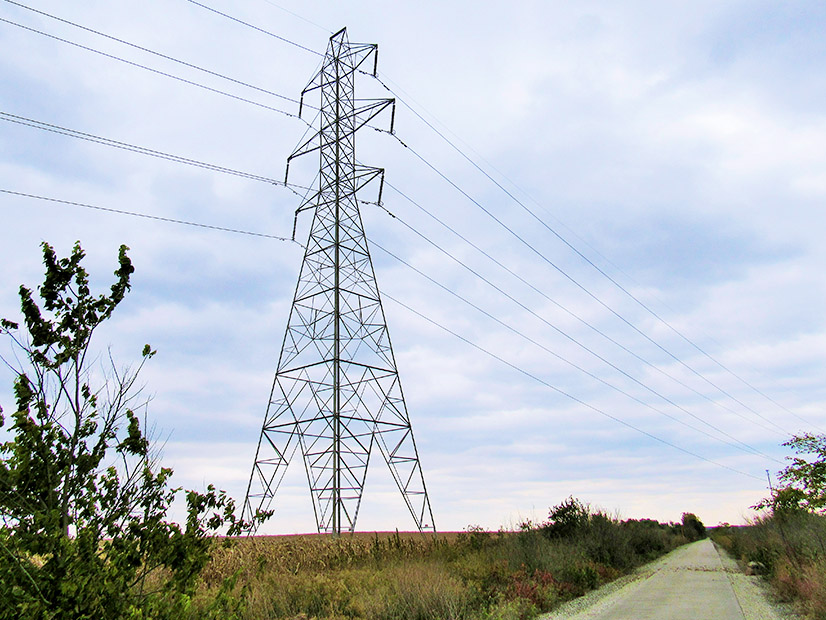ISO-NE’s proposal to comply with FERC’s Order 2023 failed to meet the voting threshold to receive support from the NEPOOL Transmission Committee on Feb. 15. A series of stakeholder amendments to the proposal also failed to exceed the threshold.
Order 2023 is set to upend how the RTO handles the interconnection of new generators, but the upcoming April 3 compliance deadline has put a strict timeline on the development of the proposal and the stakeholder engagement process.
Intended to speed up interconnection timelines, the order requires RTOs to group interconnection requests together in “first-ready, first-served” cluster studies, while sharing upgrade costs among projects within the cluster. ISO-NE currently uses a “serial first-come, first-served study process,” which evaluates requests one at a time.
Prior to the vote, ISO-NE outlined its compliance proposal, which it has been discussing with stakeholders at the TC since August.
“ISO-NE is proposing to adopt the large majority of the requirements of Order No. 2023 to address queue backlogs, improve certainty, and prevent undue discrimination of new technologies through its incorporation of improved processes, deadlines and penalties,” said Al McBride of ISO-NE.
McBride highlighted several key changes to the region’s interconnection procedures. Along with the adoption of cluster studies, the new rules will include provisions intended to weed out speculative interconnection requests, including new withdrawal penalties and increased financial and site control requirements.
The compliance proposal also will change how ISO-NE models storage resources in the interconnection process. Instead of studying the impacts of storage resources charging at peak load levels, the RTO will study battery charging at a “shoulder” load level.
As proposed, each cluster process will take more than two years to be completed, with subsequent clusters initiated 582 days after the start of the previous cluster.
Throughout the stakeholder process, companies and organizations have brought over 25 amendments to the TC. This list was narrowed to six amendments by the time the committee voted Feb. 15. The proposals included amendments by RENEW Northeast, Advanced Energy United, New Leaf and Glenvale Solar.
In two amendments, RENEW proposed to separate the study costs for capacity and energy-only requests and give resources the option to request capacity interconnection only if the service would not require additional system upgrades.
Under this proposal, “a project that is viable as energy-only and is unable to pay for capacity upgrades still can attempt to get a capacity interconnection to the extent no upgrades are needed.”
ISO-NE responded that the costs from capacity and energy-only interconnection requests cannot feasibly be separated. The proposal received 57% support from the TC, failing to reach the 66.67% threshold.
In Alignment
To further the order’s intent to reduce interconnection backlogs and wait times, Advanced Energy United (AEU) proposed creating an “Interconnection Reforms Working Group” along with a reporting requirement related to interconnection timelines.
The clean energy trade organization has been vocal regarding its concerns about ISO-NE’s extension of the cluster process compared to the process outlined in Order 2023. (See Advanced Energy United Urges Changes Beyond Order 2023 for ISO-NE.)
“ISO’s proposed timelines significantly exceed the requirements of FERC’s Order,” AEU’s Alex Lawton said. “Ongoing discussion of further reforms is needed to identify opportunities to streamline the process and bring it in line with FERC’s expectations and the region’s pressing need to bring resources online more efficiently.”
Advanced Energy United also proposed a joint amendment with RENEW to add an opportunity for interconnection customers to decrease the size of a project prior to a restudy if it does not affect the cost and timing of another project. The proposal also received 57% support.
Glenvale Solar proposed an amendment aimed at reducing the costs of commercial readiness deposits, which pose a “barrier to accessing transmission for viable projects,” said Aidan Foley of Glenvale. The proposal garnered 39% of support from the TC.
New Leaf proposed that ISO-NE continue work on interconnection studies that are projected to be completed between the current cutoff date for study work and the start of the first cluster study, with goals of speeding the timelines for these projects and reducing the number of projects in the initial cluster.
Alex Chaplin of New Leaf noted this would apply to nine clean energy projects with a combined 1,485 MW of nameplate capacity. This proposal received 66.6% support from the TC, falling just short of the 66.67% threshold.
Chaplin told RTO Insider that New Leaf supports all the proposed amendments, and particularly emphasized the importance of Advanced Energy United’s proposal to create an interconnection working group.
“We think the region needs to commit to ongoing evaluation and continuous improvement of our interconnection process,” Chaplin said, adding that the working group “would help facilitate the ongoing improvement of the interconnection process that we believe is required to meet the region’s clean energy goals in an efficient manner.”
ISO-NE’s unamended compliance proposal also failed to pass the TC’s voting threshold with 56% of the committee in support.
An ISO-NE spokesperson told RTO Insider that its compliance proposal “aligns with FERC Order 2023, and we do not anticipate any expansion of our compliance,” but noted the RTO still is assessing the amendments and has not made a final decision.
The Participants Committee will vote on the compliance proposal in March, and stakeholders also can put forward any amendments. NEPOOL votes are recommendations to ISO-NE, and the RTO does not need to adopt any amendments in filings to FERC.




